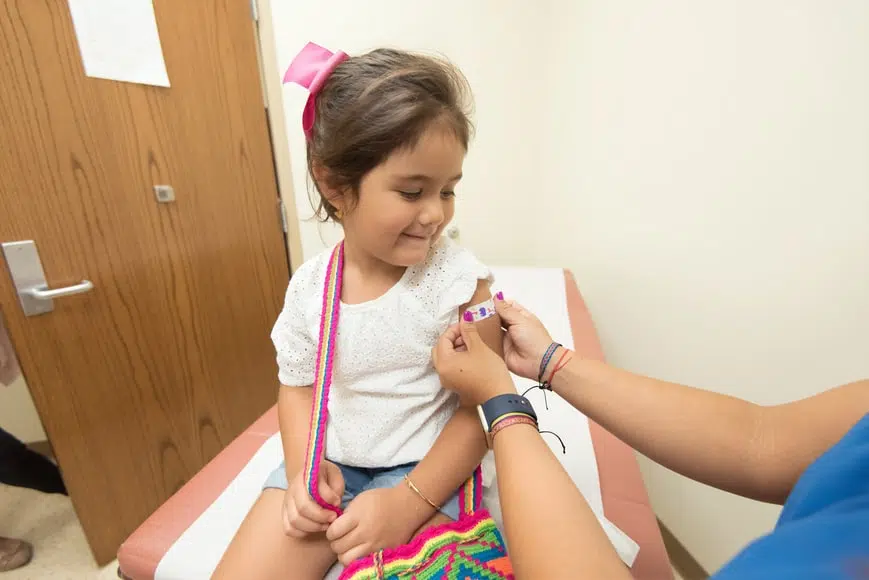While COVID symptoms might have presented in a milder form in children generally, the impact of the pandemic on the overall health and wellbeing of children has been significant, a report has warned.

Children were 10 times less likely to be hospitalised as a result of COVID, but the pandemic has resulted in an 81% rise in demand for children and young people’s mental health services, according to data analysed by QualityWatch, a joint programme between the Nuffield Trust and the Health Foundation.
Jessica Morris, researcher at the Nuffield Trust said: “In many ways, the wider effects of the pandemic and nationwide lockdowns on children and young people have been greater than the Covid-19 infection itself. Despite being much less at risk of hospitalisation from the virus, the youngest members of our society have not escaped unscathed and we can see a heavy toll on their mental wellbeing and access to health services.”
The report found:
- In April to September 2021, there were over 15,000 urgent or emergency crisis care referrals for children and young people – a 59% increase compared to the same period in 2019.
- One in five children and young people waited more than 12 weeks for a follow-up appointment with mental health services between April 2020 and March 2021, increasing the risk that conditions deteriorate further.
- The number of children and young people under the age of 19 waiting to start treatment for a suspected eating disorder quadrupled from pre-pandemic levels to 2,083 by September 2021.
- During the pandemic, the number of children and young people under 19 years attending A&E primarily for an eating disorder doubled, from 107 in October 2019 to 214 in October 2021.
- Children attending A&E with an eating disorder are having to spend longer there than those with many other diagnoses. In October 2021, 65% of children attending A&E with an eating disorder spent over four hours in A&E, compared to the average of 19% for all diagnoses.
Jessica Morris added: “Healthcare services for children and young people, just as with adult care, are facing an uphill battle to recover from the pandemic, but they rarely get the same level of scrutiny or exposure. With referrals for mental health services jumping to unprecedented levels, understanding the full impact of the pandemic on children's health is critical if we are to support services to improve access and meet the growing health and care needs of our young people.”
As the pandemic struck, there was a 79% drop in the rates of referrals from GPs to hospitals regarding care for children and young people.
However, since then there has been a 47% increase in urgent referrals to hospital for children suggesting a deterioration in children’s health and taking the rate of referrals to higher than pre-pandemic.
In the seven months between April and November 2021, the waiting list for planned paediatric hospital care grew by 22% resulting in 300, 465 children and young people waiting. In fact, almost 1,000 children and young people had been waiting over two years for paediatric hospital services in November 2021.
At the same point in November 2021, 15.7% of children under 16-years old with suspected cancer waited longer than two weeks to see a consultant following an urgent GP referral - 156 children out of 995 seen in total - up from 6.0% in November 2019.
The impact of the pandemic and the knock-on effects on health care, social and education services have seen many children and young people have formative years of their development disrupted. Meanwhile failure to diagnose and treat childhood illness, including cancer, and mental health conditions early can have lasting harm on future health.
Tim Gardner, senior policy fellow at the Health Foundation said: “The analysis is further evidence that the headline numbers of Covid-19 cases, hospital admissions and deaths mask the unequal burdens carried by different generations during this pandemic.
“Covid-19 has had a profound impact on the health of our children and young people, even though they are generally at least risk from the virus itself. The pandemic has driven demand for mental health services to record levels and increased delays in accessing routine hospital treatment, while the disruption to education, employment and social support will have consequences for children's future health prospects.
“As the country emerges from the pandemic, there is an opportunity to ensure no one is left behind. Children and young people must be at the heart of the national recovery effort, including revisiting plans to expand access to mental health services to account for greater need and targeted action to address the backlogs in children's health services,” he concluded.
Growing problems
What has been the impact of Covid-19 on health care for children and young people in England?

